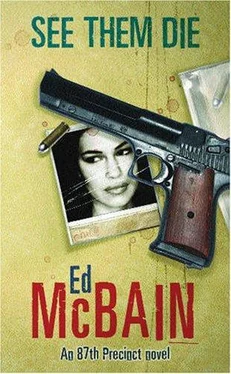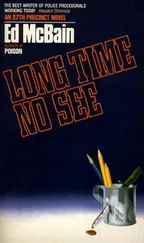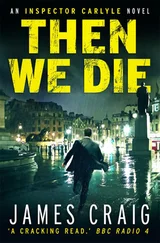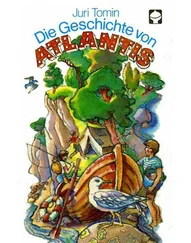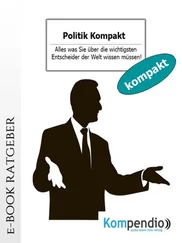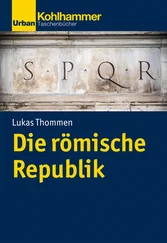Ed McBain - See Them Die
Здесь есть возможность читать онлайн «Ed McBain - See Them Die» весь текст электронной книги совершенно бесплатно (целиком полную версию без сокращений). В некоторых случаях можно слушать аудио, скачать через торрент в формате fb2 и присутствует краткое содержание. Жанр: Полицейский детектив, на английском языке. Описание произведения, (предисловие) а так же отзывы посетителей доступны на портале библиотеки ЛибКат.
- Название:See Them Die
- Автор:
- Жанр:
- Год:неизвестен
- ISBN:нет данных
- Рейтинг книги:5 / 5. Голосов: 1
-
Избранное:Добавить в избранное
- Отзывы:
-
Ваша оценка:
- 100
- 1
- 2
- 3
- 4
- 5
See Them Die: краткое содержание, описание и аннотация
Предлагаем к чтению аннотацию, описание, краткое содержание или предисловие (зависит от того, что написал сам автор книги «See Them Die»). Если вы не нашли необходимую информацию о книге — напишите в комментариях, мы постараемся отыскать её.
See Them Die — читать онлайн бесплатно полную книгу (весь текст) целиком
Ниже представлен текст книги, разбитый по страницам. Система сохранения места последней прочитанной страницы, позволяет с удобством читать онлайн бесплатно книгу «See Them Die», без необходимости каждый раз заново искать на чём Вы остановились. Поставьте закладку, и сможете в любой момент перейти на страницу, на которой закончили чтение.
Интервал:
Закладка:
1
July.
Heat.
In the city, they are synonymous, they are identical, they mean one and the same thing. In the 87th Precinct, they strut the streets with a vengeance, these twin bitches who wear their bleached blond hair and their bright-red lipstick slashes, who sway on glittering rhinestone slippers, who flaunt their saffron silk. Heat and July, they are identical twins who were born to make you suffer.
The air is tangible. You can reach out to touch it. It is sticky and clinging, you can wrap it around you like a viscous overcoat. The asphalt in the gutters has turned to gum, and your heels clutch at it when you try to navigate the streets. The pavements glow with a flat off-white brilliance, contrasting with the running black of the gutter, creating an alternating pattern of shade and light that is dizzying. The sun sits low on a still sky, a sky as pale as faded dungarees. There is only a hint of blue in this sky for it has been washed out by the intensity of the sun, and there is a shimmer over everything, the shimmer of heat ready to explode in rain.
The buildings bear the heat with the solemnity of Orthodox Jews in long, black frock coats. They have known this heat. Some of them have withstood it for close to a century, and so their suffering is a silent one; they face the heat with the intolerant blankness of stoics.
Scrawled onto the pavement in white chalk are the words: JES&S VIENE, PREPARENSE FOR NUESTRA REDENCION!
The buildings crowd the sidewalks and prepare neither for their redemption nor their perdition.
There is not much sky on this street.
There are places in the world where the sky is big, where it stretches from horizon to horizon like a gaudy blue tent, but such is not the case on this street. The sky here seems to have been wedged down over the uneven silhouette of the buildings, crammed into place because it would not fit properly, battered with a grimy fist until it tightly capped the street and contained the heat there.
The street is quiet.
It is only 8:40 in the morning, and it is Sunday.
There are unfluttering scraps of newspapers in the gutters; they share the gummy asphalt with empty tin cans and broken bottles and sticks ripped from orange crates. In the empty lot on one corner, there are the charred remains of bonfires, a torn and soiled crib mattress, the trailing white snakes of used condoms. The fire escapes are hung with the trivia of life: blankets, pillows, beer cases, potted plants, and here and there a guitar. A man sleeping on one of the fire escapes moves his arm, and it dangles down through the iron bars for a moment, swings idly, and then comes to a rest.
This is the only movement on the street.
The air is fetidly still. The heat is a self-contained, lifeless unit which does not stir and which discourages the motion of anything it embraces. It has baked itself into the brick fronts of the tenements, and the asphalt, and the pavements, and the sky. It has baked itself into these things and onto these things like orange enamel on copper.
Somewhere in the distance, the church bells toll, for this is Sunday morning, but even the bells ring qut on the air with a harsh flatness, a metallic unevenness that must force its way through layers and layers of heat. Beneath that, like a rushing counterpoint, the elevated train roars past two blocks south, and then the train sound dies, and the bell sound dissipates in the sticky silence of the air, and the street is still once more.
Two people will die on this street today.
The boy's name was Zip.
He was seventeen years old and he erupted from the mouth of the tenement like a hand-grenade explosion. He came onto the stoop lightly, and then almost danced down the steps. He looked up at the waking man on the fire escape, waved nonchalantly, and then glanced up the street. He was tall and thin, good-looking in a craggy way, with a light complexion and black hair which he wore in a high crown off his forehead. He was wearing tight black slacks and high-topped combat boots and a bright silk purple jacket with his name embroidered in yellow on the left breast.
He looked at his watch.
It was 8:45, and he noted the time and then nodded, as if he had correctly estimated the exact duration of each of his movements up to this moment, as if he and the universe were meshing gears correctly. He looked up the street again. There was an air of restless urgency about him, the air a business magnate wears when he is expecting to close a deal for the purchase of a new company. The attitude was curious on a seventeen-year-old. And yet, he looked at his watch again, a person captured by the intricacies of time, the mind of a fifty-year-old banker seemingly ensnared in the body of an adolescent.
He lighted a cigarette, took several puffs on it, and then stamped it out under one booted foot. He looked at his watch again, stepped into the center of the street, and then started for the luncheonette on the corner. A huge sign traveled the corner of the building over the luncheonette like the marching electric letters of the Times Building in New York. These letters, however, were painted in red on a white field and they did not announce world-shattering events. They simply stated: luis luncheonette. The luncheonette occupied a space in the corner of the building. When the doors were rolled back, the luncheonette became an extension of the sidewalk, open on both sides, the avenue and the street. The doors were closed now. The corrugated iron presented the impregnable look of a fortress. The boy went to the door on the street side, tried it, found it locked, and kicked it in anger.
"What are you doing there?" a voice said. "Get away from there!"
The man who came up the street had spoken with a slight Spanish accent, a gentle accent which seemed molded exactly to his appearance. He was a stoop-shouldered man wearing a small black mustache, a man who seemed older than his fifty-odd years, who moved with an economy that somehow seemed tortured.
"Don't tell me you're finally gonna open this dump!" Zip said.
Luis Amandez walked to the huge iron door and said, "What are you doing? Trying to break in here, hah? That what you were trying to do?"
He reached into his pocket for the key to the padlock, inserted it, took off the lock, and prepared to roll the door back into its overhead tracks.
"Don't flatter the dump," Zip said. "Come on, come on, get the lead out. Open the goddamn doors."
"This is my place, and I'll open them as slow or as fast as I want to. You snotnoses..."
Zip grinned suddenly. "Come on, man," he said, and there was infectious warmth in his voice now. "You got to move! You want to get any place, you got to move."
Luis rolled back the first of the doors. "I wish you would move," he said. "To California."
"Dig the old bird," Zip said. "He's got humor." And he walked into the luncheonette and directly to the wall phone near the jukebox. Luis went around to the avenue side and took the padlock off the door there, rolling the door back, allowing the sunshine to rip through the corner stone like crossfire. Zip had taken the phone from its hook, reached into his pocket for a coin, and discovered that the smallest change he had was a quarter. He slammed the receiver onto the hook and went to meet Luis as he entered the shop.
"Listen, break a quarter for me," he said.
"What for?" Luis asked. "For the jukebox?"
"What's all the time 'What for?' Don't I buy enough in this crumby joint? I ask you for change, don't give me a Dragnet routine."
"It's too early to play the juke," Luis said calmly, going behind the counter and taking a white apron from a hook. "There are still people sleeping."
"In the first place, I don't care who's sleeping. It's time they were hustling. In the second place, I ain't gonna play the juke, I'm gonna make a phone call. And in the third and last place, you don't change this two bits for me, and one day you're liable to come in and find all your coffeepots busted."
Читать дальшеИнтервал:
Закладка:
Похожие книги на «See Them Die»
Представляем Вашему вниманию похожие книги на «See Them Die» списком для выбора. Мы отобрали схожую по названию и смыслу литературу в надежде предоставить читателям больше вариантов отыскать новые, интересные, ещё непрочитанные произведения.
Обсуждение, отзывы о книге «See Them Die» и просто собственные мнения читателей. Оставьте ваши комментарии, напишите, что Вы думаете о произведении, его смысле или главных героях. Укажите что конкретно понравилось, а что нет, и почему Вы так считаете.
